



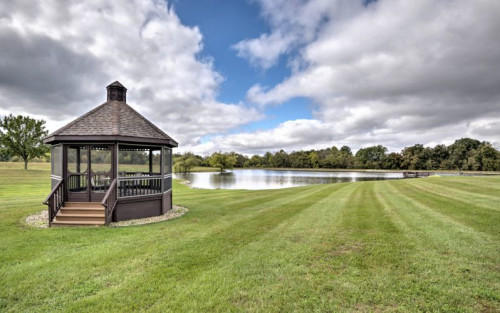




SEE Purpose Treatment
Verified Center
This provider's information has been quality-checked by Recovery.com's Research Team for accuracy and completeness, including center verification through appropriate third-party organizations.
Treatment Focus
This center treats substance use disorders and co-occurring mental health conditions. Your treatment plan addresses each condition at once with personalized, compassionate care for comprehensive healing.
Primary Level of Care
Offering intensive care with 24/7 monitoring, residential treatment is typically 30 days and can cover multiple levels of care. Length can range from 14 to 90 days typically.
Treatment Focus
This center treats substance use disorders and co-occurring mental health conditions. Your treatment plan addresses each condition at once with personalized, compassionate care for comprehensive healing.
Primary Level of Care
Offering intensive care with 24/7 monitoring, residential treatment is typically 30 days and can cover multiple levels of care. Length can range from 14 to 90 days typically.
Provider's Policy
Are you ready to SEE the purpose in your life? SEE Purpose Treatment Center works with most major PPO & POS insurance providers in order to help ease the costs associated with treatment. We are also in-network with the following carriers: First Health Network, Aetna, Ambetter, Humana, Beacon Health Options, Cigna and Blue Cross Blue Shield.
SEE Purpose Treatment
SEE Purpose Treatment
About SEE Purpose Treatment
SEE Purpose brings a unique and individualized approach to treating substance use and alcoholism. They thoroughly assess each client's history with addiction and mental health to establish a tailored and personalized recovery plan. SEE Purpose’s goal is to understand what drives and motivates each client to help them rediscover their purpose. They believe that finding this purpose is essential for the recovery process and are dedicated to helping clients achieve it. By integrating traditional, holistic, and wellness therapies, they provide an experience that is healing, purposeful, and restorative.
Exceptional Staff And Location
The staff at SEE Purpose are a primary factor in success. Each staff member is highly qualified, certified, and full of genuine support and compassion. SEE Purpose ensures that clients are progressing as they should, and that their treatment feels satisfying and successful. SEE Purpose’s facility is just a short drive from Bloomington, Indiana and offers a boutique, luxury environment that puts clients at ease during the healing process. Their grounds have a beautiful lake, a swimming pool, tennis court, gym, and open fields for clients to relax and enjoy the scenery. Their lakeside location is especially beneficial for those who enjoy having access to nature and seeing the wildlife the lake brings in.
Care That’s Personal
SEE Purpose seeks to provide treatment that is truly based on who clients are and what they need, not a template-treatment for everyone to follow. Because of that, they offer varying modalities of treatment. Evidence-based modalities include cognitive behavioral therapy, eye movement therapy (EMDR), and psychoeducation. SEE Purpose’s wellness-based modalities include massage therapy, relaxation therapy, and recreation therapy. The variety of treatments they offer helps SEE Purpose find the best combination of traditional, evidence-based, and holistic treatments to suit clients’ needs.
Rest And Recover By The Lake
SEE Purpose provides a wholly unique lakeside treatment experience, setting them apart. They’re happy to offer lake amenities like kayaking, swimming, and peddle boating. For other swimming and relaxing opportunities, SEE Purpose also has a pool with lounge chairs for soaking up the sun. Inside, clients will enjoy a well-decorated and relaxing space. SEE Purpose’s work and play options include a business center, arcade, library, and a wellness center. Come and SEE a program that's built around clients’ individual needs, with a community of people who truly care about clients’ futures and success in recovery.
SEE Purpose is accredited by the Joint Commission and accepts the following insurances: Aetna, Ambetter, Beacon Health Options, Blue Cross Blue Shield, Cigna, ComPsych First Health Network, GuidanceResources Worldwide, and Humana.

Highlights from the Center
Highlights
These highlights are provided by and paid for by the center.
Customized Treatment Plans
Medically Assisted Detox
Private Rooms Available
Lakeside
12-Step Approach
Center Overview
Treatment Focus
This center treats substance use disorders and co-occurring mental health conditions. Your treatment plan addresses each condition at once with personalized, compassionate care for comprehensive healing.
Joint Commission Accredited
The Joint Commission accreditation is a voluntary, objective process that evaluates and accredits healthcare organizations (like treatment centers) based on performance standards designed to improve quality and safety for patients. To be accredited means the treatment center has been found to meet the Commission's standards for quality and safety in patient care.

SEE Purpose Treatment
Insurance Accepted
Cash Pay Rates
Estimated Cash Pay Rate
Center pricing can vary based on program and length of stay. Contact the center for more information. Recovery.com strives for price transparency so you can make an informed decision.



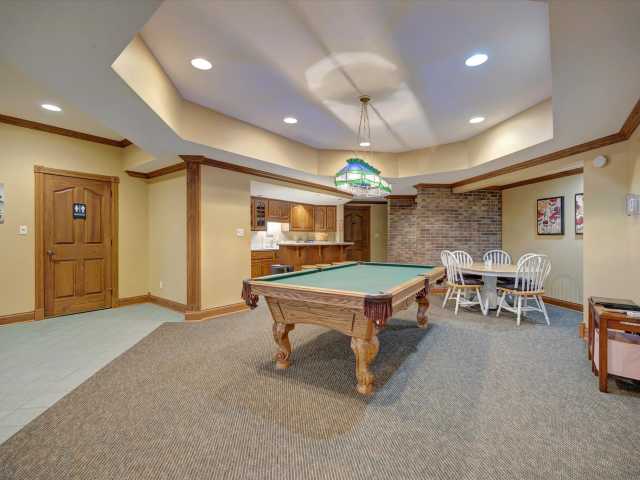
Recovery.com Verified Listing
Recovery.com verified that the name, location, contact information and license to operate for this treatment provider are valid and up-to-date.

Joint Commission Accredited

Licensed
Recovery.com is an independent, third-party mental health resource. Verification does not imply endorsement and does not guarantee the quality of treatment services.
Meet Your Care Team

Marisa S.
Primary Therapist
LSW
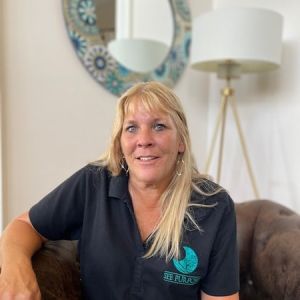
Tammy Ray
House Keeping

Libby
Chef

Tiffani Lundy
Admissions Coordinator
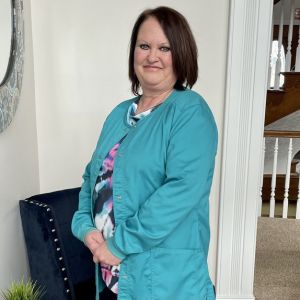
Michelle K.
Detox Technician
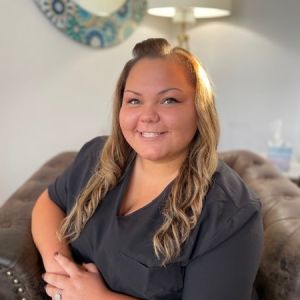
Aryel R.
Detox Technician
CMA
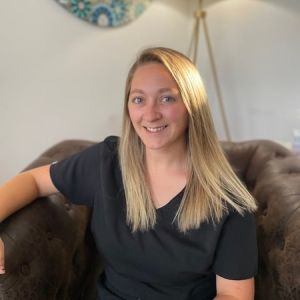
Peyton L.
Detox Technician
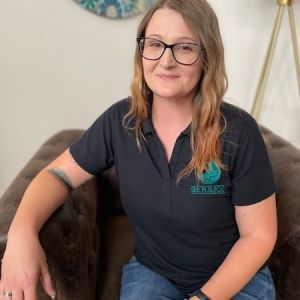
Emily R
Residential Technician

Abby A
Residential Technician

Amanda K
Residential Technician
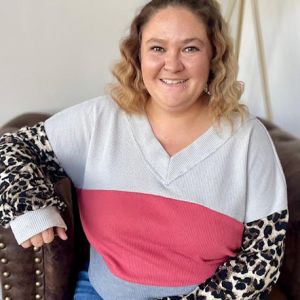
Samantha C
Residential Technician

Rebecca “Becca” R
Residential Technician

Katie M
Residential Technician

Richard S
Residential Technician
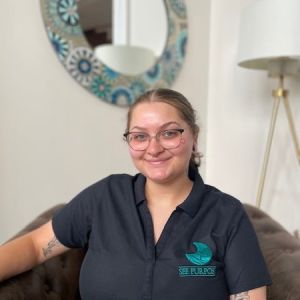
Sarah A
Neurofeedback Technician
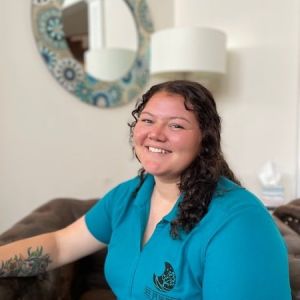
Jeannie Andrew
Residential Technician

Ellie B.
Primary Therapist
MA

Evan Amarni
Chief Executive Officer
M.S., LAADC-CA, ICADC, CIP

Eric Moore
Chief Operations Officer
CADC-II, ICADC, CIP

Alexis VanDeventer
Director of Nursing
RN

Lacee Noon
Counselor

Brittanie Ramos
CMO
M.S.
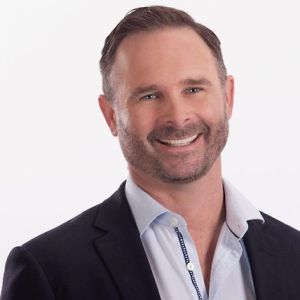
Dr. Christian Small
Medical Director

Julia Crane
Clinical Director
LCSW

Jay G.
Lead Residential Tech

Regina Conard
Licensed Practical Nurse
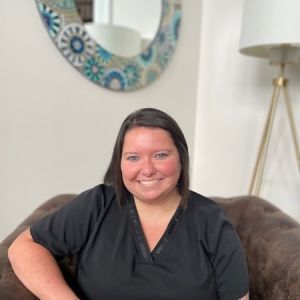
Tara I.
Detox Nurse
CMA
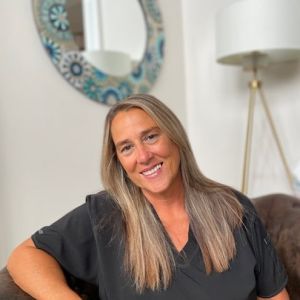
Becky Borter
Detox Nurse
CMA
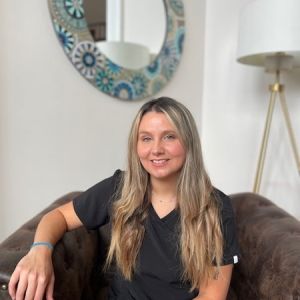
Elissa F.
Detox Nurse
CMA
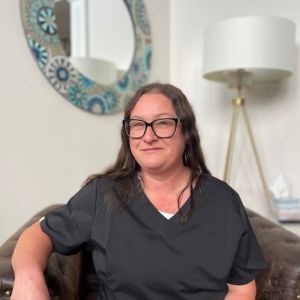
Brandy G.
Detox Technician
EMT
Your Care Options
Specializations
Alcohol
Using alcohol as a coping mechanism, or drinking excessively throughout the week, signals an alcohol use disorder.
Detox
Detox fully and safely removes toxic substances from the body, allowing the next steps in treatment to begin with a clean slate.
Co-Occurring Disorders
A person with multiple mental health diagnoses, such as addiction and depression, has co-occurring disorders also called dual diagnosis.
Executives
Executive treatment programs typically directly support the needs of people who manage businesses and may provide flexible schedules and office space to allow work during treatment.
Non 12 Step
Non-12-Step philosophies veer from the spiritual focus of the 12-Steps and instead treat the disease of addiction with holistic or secular modalities.
Post Traumatic Stress Disorder
PTSD is a long-term mental health issue caused by a disturbing event or events. Symptoms include anxiety, dissociation, flashbacks, and intrusive thoughts.
Veterans
Patients who completed active military duty receive specialized treatment focused on trauma, grief, loss, and finding a new work-life balance.
Trauma
Some traumatic events are so disturbing that they cause long-term mental health problems. Those ongoing issues can also be referred to as "trauma."
Who We Treat
Young Adults
Emerging adults ages 18-25 receive treatment catered to the unique challenges of early adulthood, like college, risky behaviors, and vocational struggles.
Midlife Adults
For adults ages 40+, treatment shifts to focus on the unique challenges, blocks, and risk factors of their age group, and unites peers in a similar community.
Treatment Services
Detox
Detox fully and safely removes toxic substances from the body, allowing the next steps in treatment to begin with a clean slate.
Residential
In a residential rehab program, patients live onsite, with access to daily treatment and 24-hour care. An average stay is 30-90 days.
Approaches
Evidence-Based
A combination of scientifically rooted therapies and treatments make up evidence-based care, defined by their measured and proven results.
Family Involvement
Providers involve family in the treatment of their loved one through family therapy, visits, or both–because addiction is a family disease.
Individual Treatment
Individual care meets the needs of each patient, using personalized treatment to provide them the most relevant care and greatest chance of success.
Non 12 Step
Non-12-Step philosophies veer from the spiritual focus of the 12-Steps and instead treat the disease of addiction with holistic or secular modalities.
Therapies
1-on-1 Counseling
Patient and therapist meet 1-on-1 to work through difficult emotions and behavioral challenges in a personal, private setting.
Play Therapy
This approach is commonly used with children. It incorporates elements of play and self-expression, like boardgames, finger painting, dolls, and blocks.
Rational Emotive Behavior Therapy
A type of cognitive therapy that identifies negative self-defeating thoughts and behaviors, rewriting beliefs to be positive, empowering, and present.
Mindfulness Therapy
This ancient practice can be mental, emotional, and even spiritual. In meditation, you focus your attention on the present moment without judgement.
Adventure Therapy
This experiential approach uses the physical and emotional challenges of outdoor activities as tools for personal growth.
Attachment-Based Family Therapy
ABFT is a trauma-focused therapy that teaches you to form healthy relationships by rebuilding trust and healing attachment issues formed in childhood.
Animal Therapy
Animals can inspire trust and self-worth. In this experiential therapy, guided interactions are used to improve social skills and emotion regulation.
Aromatherapy
Inhaling or topically applying essential oils can help relieve stress, soothe pains, and relieve emotional distress.
Conditions We Treat
Post Traumatic Stress Disorder
PTSD is a long-term mental health issue caused by a disturbing event or events. Symptoms include anxiety, dissociation, flashbacks, and intrusive thoughts.
Trauma
Some traumatic events are so disturbing that they cause long-term mental health problems. Those ongoing issues can also be referred to as "trauma."
Substances We Treat
Alcohol
Using alcohol as a coping mechanism, or drinking excessively throughout the week, signals an alcohol use disorder.
Benzodiazepines
Benzodiazepines are prescribed to treat anxiety and sleep issues. They are highly habit forming, and their abuse can cause mood changes and poor judgement.
Chronic Relapse
Consistent relapse occurs repeatedly, after partial recovery from addiction. This condition requires long-term treatment.
Co-Occurring Disorders
A person with multiple mental health diagnoses, such as addiction and depression, has co-occurring disorders also called dual diagnosis.
Cocaine
Cocaine is a stimulant with euphoric effects. Agitation, muscle ticks, psychosis, and heart issues are common symptoms of cocaine abuse.
Drug Addiction
Drug addiction is the excessive and repetitive use of substances, despite harmful consequences to a person's life, health, and relationships.
Ecstasy
Ecstasy is a stimulant that causes intense euphoria and heightened awareness. Abuse of this drug can trigger depression, insomnia, and memory problems.
Heroin
Heroin is a highly addictive and illegal opioid. It can cause insomnia, collapsed veins, heart issues, and additional mental health issues.
Languages
Aftercare
Care Designed for Your Needs
Personal Amenities
Amenities
Special Considerations
Executive Program
Addiction and mental health treatment for executives typically involves high discretion, greater technology access, and more private, 1-on-1 care.
Flexible technology policies
Centers with flexible technology policies allow professionals to stay in touch with work and give patients a greater sense of connection and normalcy.
Gender-specific groups
Patients in gender-specific groups gain the opportunity to discuss challenges unique to their gender in a comfortable, safe setting conducive to healing.
Activities
Off-Site Activities
Yoga
Yoga is both a physical and spiritual practice. It includes a flow of movement, breathing techniques, and meditation.
Learn More About the Center
Common Questions For SEE Purpose Treatment
Browse through a list of frequently asked questions to learn more about SEE Purpose and their treatment center, plus testimonials from past clients.
Aftercare Planning
Learn more about how they plan aftercare at SEE Purpose and the variety of aftercare options they offer, including sober living home referrals.
Take A Tour Of SEE Purpose
See what SEE Purpose looks like–browse their various bedrooms, outdoor amenities, and living spaces.
The Benefits Of Long-Term Treatment
Learn about the benefits of attending long-term treatment at SEE Purpose Treatment and who can benefit most from long-term treatment.
What people are saying
Treatment
5.0
Accommodations
5.0
Food & Nutrition
5.0
Value
5.0
Pros
- Beautiful Location (2)
- Luxurious Accommodations (2)
- Gourmet & Nutritious Food (2)
- Friendly & Competent Staff (2)
Kerri M
Treatment in 2024 • (51 days) • Reviewed 12/15/24
Former Client
•Burbank
Rick C.
Treatment in 2021 • (30 days) • Reviewed 03/24/22
Former Client
•Small Business Owner
•Indianapolis, Indiana





